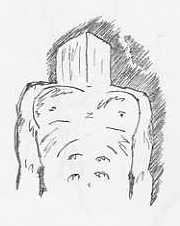 |
|
 |
||||||
Religion: |
||||||
Of course people have free will. Free will is one of the foundations of how we understand each other and especially how we understand each others’ actions. Someone who drives recklessly and gets hurt in a crash doesn’t get as much sympathy as someone who just gets crashed into. Why not? Because it was the reckless driver’s choice to drive recklessly but not the victim’s choice to get hit. Free will is central to our laws and morals.
Determinists say that we don’t really have real free will. They say that free will is an illusion, and that the laws of physics control the actions of our neurons. The determinists go on to describe free will as some impossible figment of philosophical imagination: a metaphysical, uninfluenced, personal prime mover. This free will, they say, doesn’t exist.
Well, fine, but who cares that this inarticulate philosophical concept doesn’t correspond to reality? We’re talking about free will, something that people personally experience every day. Of course that everyday sort of free will exists.
Everyday free will is a natural capacity that we evolved, like color vision. It is the capcity to deliberate, to consider options and choose one. It doesn't isolate us from the laws of cause an effect any more than color vision does.
[This essay shouldn’t be taken as a paraphrase of Daniel Dennett’s writing on free will, but it is totally inspired by that writing.] —JoT PS: The Southern Baptists have addressed the issue of whether people have free will or whether God knows in advance what each person is going to do. Their answer is "Yes." top |
||||||